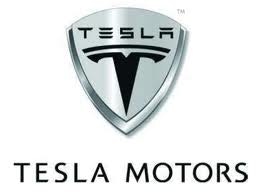In July, I wrote an article predicting Tesla Motors Inc (NASDAQ:TSLA)’s deliveries for the second quarter. On August 7th, Tesla presented its earnings and exceeded every expectation by delivering a total of 5,150 units. As a result, the stock price soared above $150 a share. In my article previous to Tesla’s earnings, I estimated the deliveries to be between 5,000 units and 5,500 units.

The last sequence of numbers in a VIN is a simple sequential number, indicating the amount of vehicles manufactured up to the individual car. Therefore, it can be used to track the number of units being produced. Since Tesla does not release monthly sales or deliveries statistics like most of its competitors, this number can be quite useful.
Tesla is ramping up production
If we take a look at this chart from Tesla enthusiast and forum contributor Craig Froehle, we can clearly see that the rate of VIN assignment is increasing considerably:

Source: Craig Froechle, found on Tesla Motors Forum.
The red line represents the rate of VIN assignment when I wrote the first article a month ago, and the blue line represents the current rate. It shows a solid improvement in a very short period of time. As of Aug. 19, Tesla was issuing VINs at a rate of 569 a week; annualized, that adds up to 29,600.
The increase coincides with the first cars being delivered in Europe. With more than a dozen locations in the EU already, I think Tesla has high hopes for this particular market. In the last earnings conference call, Elon Musk estimated the demand for the Model S at 40,000 units in 2014, half of which should come from Europe. He also insisted that the difficulties Tesla is currently facing have more to do with production than with demand.
At this rate, it looks like Tesla is going to reach 700 units a week before the end of the year, and then the 800-unit mark sometime next year, for a total of 40,000 units in 2014. This is great news for the shareholders — but bearish analysts following Tesla still think that the company is not growing fast enough to justify its enormous $18 billion market cap.
The BMW comparison
The naysayers have difficulty accepting that Tesla is currently valued at one quarter of Bayerische Motoren Werke AG (FRA:BMW)‘s $65 billion market cap. If we only consider the profits and the numbers of cars delivered, it is a difficult notion to argue. BMW is more than likely going to sell more than 1.5 million vehicles this year, while Tesla should sell slightly more than 22,000 Model S units.
However, Tesla offers only one model, the Model S. The only comparable model from BMW is the four-door sedan 6-Series. Both cars have similar pricing, averaging in the mid $80,000s, and they both target the same market.
BMW sold 23,193 units of its 6-Series in 2012, while Tesla is poised to sell almost as much of its Model S during its first full year of production. There is nothing leading us to believe that the same thing could not happen with the future models Tesla proposes.
BMW is not sitting on its hands. Next year, it’s releasing the i3 and i8, which could provide interesting upside for the company. After all, it’s still a leader in the mid-luxury and luxury car market, and it could profit from a shifting industry.
Conclusion
The rate of VIN assignments is very encouraging for shareholders. It indicates to us that Tesla is on the right track to meet its sales goals. Ultimately, by ramping up production and securing better prices from suppliers, Tesla could even achieve a 25% gross margin. I remain bullish on the stock, and I recommend investors keep a close eye on the gross margin of the Model S. Tesla needs to get to 19% during the current quarter in order to stay on track for 25% in Q4.
The article A Guide to Determining Tesla’s Production Numbers originally appeared on Fool.com.
Frédéric Lambert owns shares of Tesla Motors . The Motley Fool recommends Tesla Motors . The Motley Fool owns shares of Tesla Motors .
Copyright © 1995 – 2013 The Motley Fool, LLC. All rights reserved. The Motley Fool has a disclosure policy.



